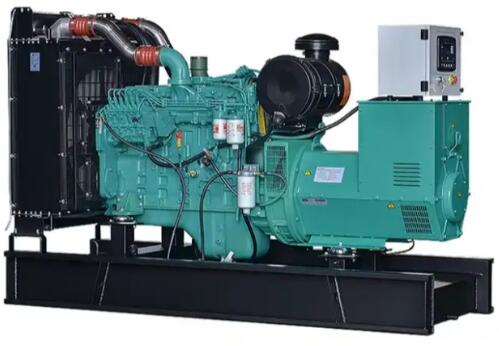Diesel generator sets are crucial assets in various industries, providing backup power during outages or serving as primary power sources in remote locations. With fuel costs being a significant operational expense, monitoring diesel consumption becomes essential for efficiency and cost-effectiveness. Here's a comprehensive guide on how to effectively check diesel consumption in a generator set.

Understanding Diesel Consumption Metrics
Before delving into the monitoring process, it's crucial to grasp the key metrics associated with diesel consumption:
Fuel Consumption Rate: This indicates the rate at which diesel is being consumed by the generator set, typically measured in liters per hour (L/hr) or gallons per hour (GPH).
Load Factor: The percentage of the generator's maximum capacity being utilized at any given time. It directly influences fuel consumption, with higher loads resulting in increased fuel usage.
Fuel Efficiency: A measure of how effectively the generator converts diesel into electrical power. Higher fuel efficiency translates to lower fuel consumption for the same power output.
Monitoring Diesel Consumption
1. Regular Fuel Level Checks: Start by checking the fuel level in the generator's tank regularly. This can be done manually by visually inspecting the fuel gauge or using automated systems that provide real-time monitoring.
2. Hour Meter Readings: Most generator sets are equipped with hour meters that track the total running time. By recording the hour meter readings at regular intervals, you can calculate the fuel consumption over specific periods.
3. Load Monitoring: Monitor the load on the generator using built-in load meters or external monitoring devices. Higher loads result in increased fuel consumption, so optimizing the load can lead to significant fuel savings.
4. Fuel Flow Meters: Installing fuel flow meters in the fuel lines allows for precise measurement of diesel consumption. These meters provide real-time data on fuel usage, enabling proactive fuel management.
5. Fuel Consumption Calculations: Utilize mathematical formulas to calculate fuel consumption based on generator load and runtime. This method provides accurate insights into fuel usage patterns and allows for effective planning.
6. Remote Monitoring Systems: Implement remote monitoring systems that track fuel levels, consumption rates, and generator performance in real-time. These systems offer enhanced visibility and enable timely intervention in case of anomalies.
7. Periodic Maintenance: Regular maintenance of the generator set, including fuel system inspections and tune-ups, ensures optimal performance and fuel efficiency. Addressing any issues promptly can prevent excessive fuel consumption.
Benefits of Efficient Diesel Consumption
Efficient monitoring and management of diesel consumption offer several benefits:
Cost Savings: By optimizing fuel usage, businesses can significantly reduce operational costs associated with running generator sets.
Environmental Impact: Lower fuel consumption results in reduced emissions, contributing to environmental sustainability.
Enhanced Reliability: Efficient fuel management ensures uninterrupted power supply, minimizing downtime during outages.
Conclusion
Monitoring diesel consumption in generator sets is essential for optimizing efficiency, reducing costs, and ensuring reliable power supply. By employing a combination of manual checks, automated systems, and proactive maintenance measures, businesses can effectively manage fuel usage and maximize the performance of their diesel generators.
For further assistance on optimizing diesel consumption or sourcing quality generator sets, feel free to contact us. As your trusted supplier, we're here to support your power generation needs.
Comments
Post a Comment